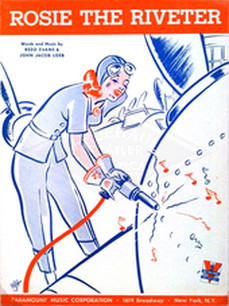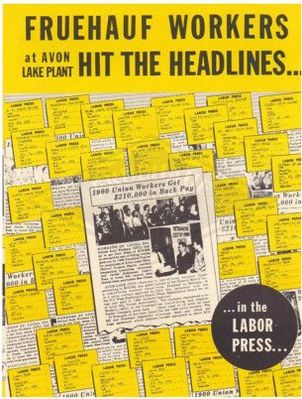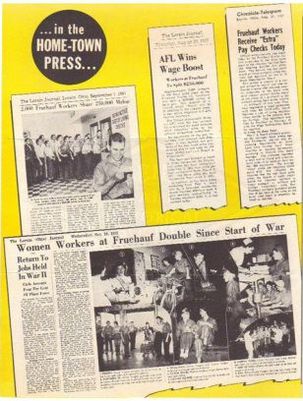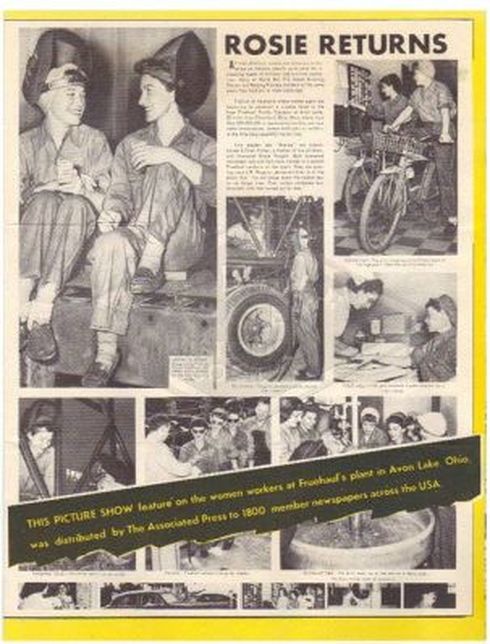Rosie the Riveter
During the Korean War, Fruehauf Trailer Company employed many women
"Rosie Returns", "Fruehauf Workers Receive 'extra' Pay Checks Today" and "1900 Union Workers win Fruehauf Wage boost for AFL" These news reports circulated among home-town news in the mid-west where Fruehauf plants were located. Fruehauf had had an abysmal record with union and union negotiations. Harvey had been historically dead set against any union organizers at Fruehauf. Following the violations of the Wagner Act in 1935, Harvey had been forced to follow the letter of the law and was uncooperative at best.
Recognizing the damage that this kind of attitude had among the rank and file of the labor force, Roy Fruehauf made every effort to be fair and even generous in his relations with their workers. Roy had worked his way up the ladder at Fruehauf, his affable style and friendly personality made him a favorite among the average Joe's who were on the factory lines. He knew and understood them. Embracing new thinking and using a female work force Fruehauf stepped into the modern era of industry. Fruehauf made an effort to cooperate with unions and provide a positive working culture for its employees. This strategy paid off in dividends with a more productive and cooperative labor force.
Recognizing the damage that this kind of attitude had among the rank and file of the labor force, Roy Fruehauf made every effort to be fair and even generous in his relations with their workers. Roy had worked his way up the ladder at Fruehauf, his affable style and friendly personality made him a favorite among the average Joe's who were on the factory lines. He knew and understood them. Embracing new thinking and using a female work force Fruehauf stepped into the modern era of industry. Fruehauf made an effort to cooperate with unions and provide a positive working culture for its employees. This strategy paid off in dividends with a more productive and cooperative labor force.
 Rosie the Riveter
Rosie the Riveter
The term "Rosie the Riveter" was first used in 1942 in a song of the same name written by Redd Evans and John Jacob Loeb. The song was recorded by numerous artists, including the popular big band leader Kay Kyser, and it became a national hit.The song portrays "Rosie" as a tireless assembly line worker, who is doing her part to help the American war effort. The name is said to be a nickname for Rosie Bonavitas who was working for Convair in San Diego, California. The idea of Rosie resembled Veronica Foster, a real person who in 1941 was Canada's poster girl for women in the war effort in "Ronnie, the Bren Gun Girl."




